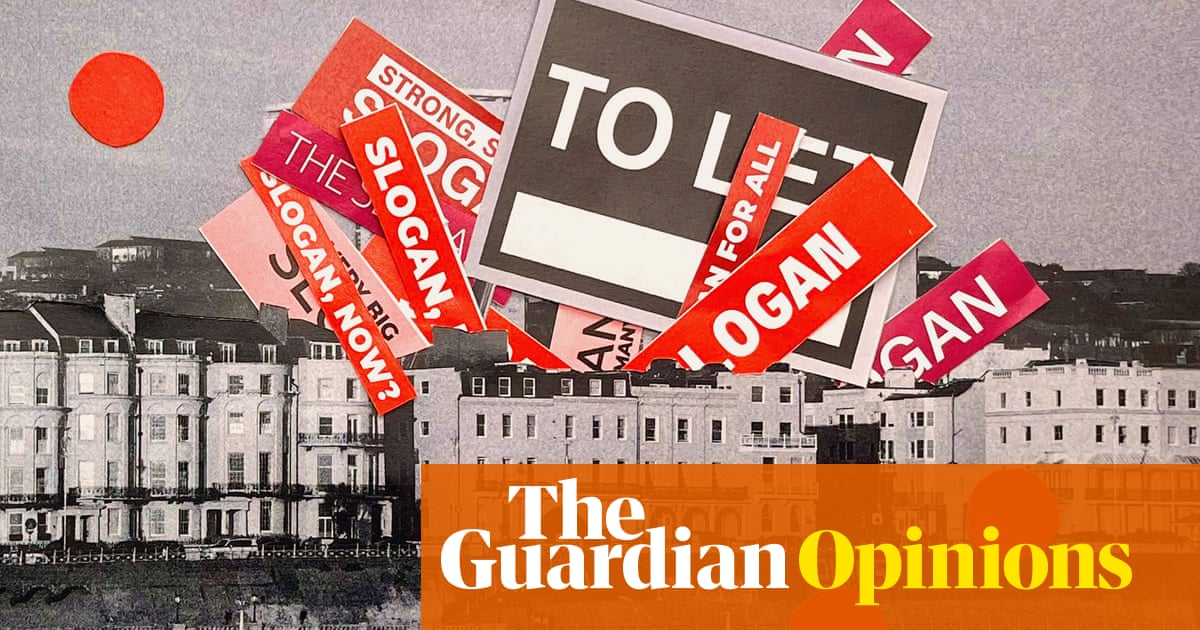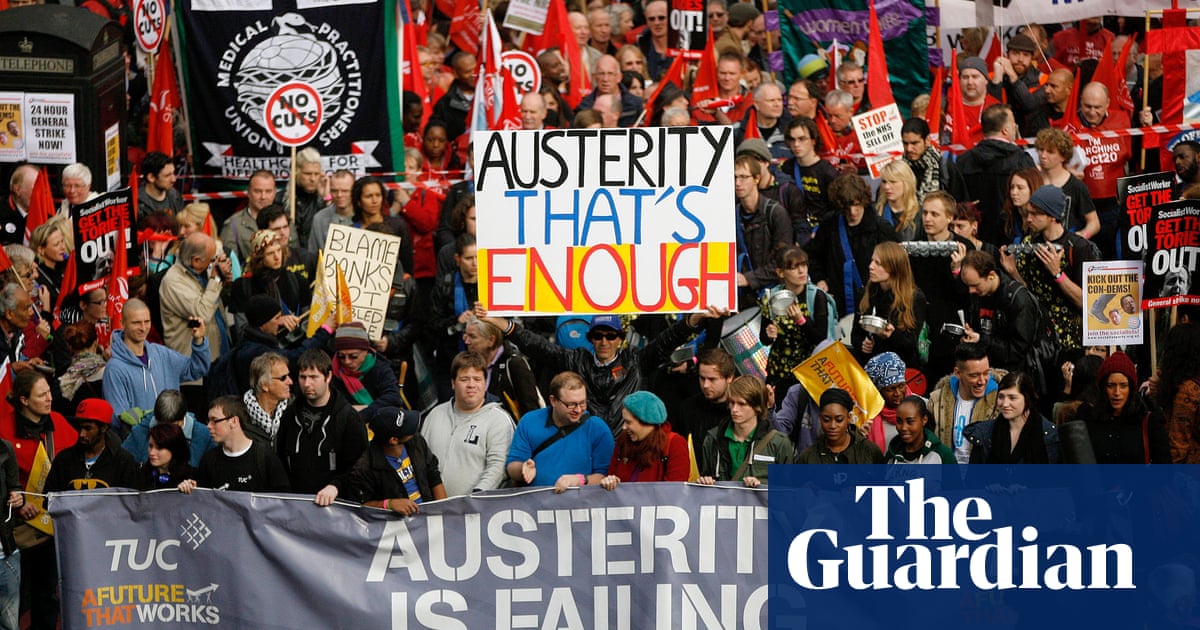Our lack of affordable, safe housing is a national crisis. Here are three things Labour can do to fix it | Peter Apps


The failures in housing policy over several generations are now all too obvious: rising homelessness, families and key workers priced out of cities and a generation unable to move out of their parents’ homes. The next government needs to take radical action to change this picture, rather than make small tweaks to a failed system. These are some of the steps I would take to get there.
1. Invest in social housing
The next Labour government must break with the idea that we can no longer afford to build new social rented homes, and instead return to the ideals of the postwar consensus, where housing provision was as much a role for the state as health and education.
Despite towering war debts, in 1953 the UK’s local authorities built 245,000 social rented homes in a single year, which accounted for 75% of all homes built. Last year, there were a shade over 9,500 social rent homes built in England – just 4% of all homes built.
We are not going to go back to 1950s levels of council housebuilding any time soon, but the contrasting figures should at least illustrate that another way is possible. Even a return to the 40,000 social rented homes built in 2010-11 – a result of New Labour programmes – or the 57,000 built under a Conservative government in 1993 would make a major difference. The low numbers in recent years are a historical quirk of the post-2010 austerity era, and Labour should consign them to history.
The party should realise that higher levels of investment in social housing are necessary to make its big commitment to new towns work and to navigate the current market downturn. Since there is no point turning on the taps with the plug out, Labour should also scrap the right to buy as part of this drive.
A report last month calculated that investing in 90,000 social homes would repay within 11 years and would generate a £12bn profit for the taxpayer over 30 years. It is time to understand that government borrowing for this sort of investment is wholly different from borrowing for tax cuts, energy bill relief or banking sector bailouts. If rigid fiscal rules preclude this sort of investment, the rules should change.
2. Focus on reducing homelessness
Over the past 14 years, the government’s stated housing objective has been to boost home ownership. The result? A steep rise in house prices.
Meanwhile, the number of households in temporary accommodation in England has soared to 109,000 – a rise of almost 120% since 2010. On top of this, rough sleeping has risen by 27% in a year, and the number of families presenting to their council as homeless has grown by almost 30,000 in five years.
Labour should change the state’s housing policy objective from boosting home ownership to relieving and preventing homelessness – the most obvious and tragic manifestation of our broken system.
By promising to be judged on its ability to reduce rough sleeping, the number of families in temporary accommodation and individuals who present to their local authority as homeless, Labour would mark a vital philosophical shift from which better policy would flow.
The quickest lever would be to increase the local housing allowance – the total benefits that can be claimed for housing costs – back to pre-austerity levels. This would allow councils to rehouse homeless families more easily and allow those in financial stress to keep a roof over their head.
But in the longer term, Labour would need to explore western European private rental models, the defining characteristics of which are some form of rent control and long-term security of tenure. It would also mean adopting housing-first models, where rough sleepers are given a home along with further support, which have all but eliminated rough sleeping in Finland.
3. Get a grip on the post-Grenfell building safety crisis
The shocking scenes in Valencia last month, where 10 people died in a tower fire, are the most stark reminder of the urgent need to make our buildings safe. Nearly seven years on from the Grenfell Tower fire, there are still many thousands of buildings around the UK that have major fire safety defects. The residents of these buildings are unable to move on with their lives and it is only luck that has prevented a repeat disaster.
What should have happened in the immediate aftermath of the Grenfell fire, and what Labour must prioritise in government, is a centralised response from the recently created building safety regulator. The next government should beef up its powers, give it a mandate to oversee the removal of dangerous cladding and repair of other defects and ensure that developers, contractors and cladding suppliers are held to account. Tough action should be taken against those dragging their feet.
Fire safety should simply be the first step in a major push to raise safety and quality standards across the whole housing sector, which must also include stronger rights for renters living in disrepair. We also need tougher oversight of construction sites, strong penalties for those who fail to build safe homes and genuine protections for homebuyers. Otherwise the planned expansion of housebuilding will simply be an expansion of the building safety crisis.
Source link




